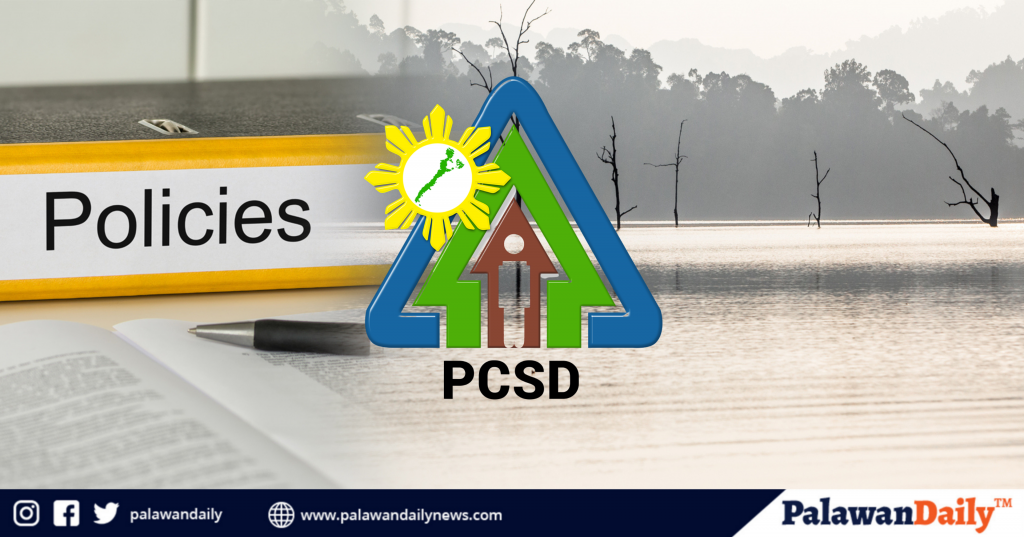The Palawan Council for Sustainable Development (PCSD) Scientific Advisory Panel (SAP) encourages local government units (LGUs) in Palawan, including Puerto Princesa City, to enact policies for water conservation in the province.
The policies include providing water pitchers and water dispensers during meetings, conferences, and activities instead of using single-use plastic bottles, and requiring rainwater harvesting facilities for resorts and other tourism establishments.
In its policy brief, PCSD stated that its scientific body recognizes the urgency of the matter, and recommended measures to address the issues related to the sustainability of freshwater in the province.
In the natural water bodies in the province, improperly disposed solid wastes including plastic wrappers and plastic bottles are found. PCSD identified inadequate sanitation and improper solid wastes disposal as a serious threat to Palawan’s freshwater resources. They warned that the improper and weak management of solid waste and sanitation leads to the deterioration of the quality of surface and groundwater sources.
“Inadequate sanitation and solid wastes disposal also pose threats to freshwater resources. The piped sewerage system is only accessible to less than 10 percent of the country’s population according to the World Health Organization (WHO) in 2019, and Palawan is not on the list of the provinces with operating nor planned sewerage network. The household toilets are connected to septic tanks that are crudely designed and not maintained properly. Water related diseases such as diarrhea is still among one of the leading causes of morbidity in the province per records of the Philippine Statistics Authority (PSA) in 2018,” PCSD stated in its policy brief entitled ‘Improving the Freshwater Resources Management in Palawan.’
In Palawan, nine percent of the total households still do not have access to safe water. For these households, water is taken from unprotected spring, lake, rivers, and/ or open dug well. Meanwhile, out of 91 percent of the households with access to safe water, 43 percent still rely on Level 1 water services such as handpumps, shallow wells, and rainwater collection based on PSA data in 2018.
Also, PCSD said that the water demand has increased with the growing population through natural birth and migration, the influx of tourists, intensified agriculture, and other socio-economic activities.
“Palawan and Puerto Princesa City have a projected combined population of 1.22 million in 2020. The hotels and accommodation establishments have increased by fourfold from 277 in 2015 to 1,066 in 2017 while the hotel and accommodation rooms grew from 2,574 to 12,021 in 2015 and 2017 respectively. Tourist arrival increased by fourfold in eight years from 534,872 in 2010 to 1,919,091 in 2018. Each tourist in Palawan consumes 0.497 m3/day,” stated in the document.
The policies recommended by the PCSD Scientific Advisory Panel are considered as measures that will mitigate its impacts on the natural water resources in Puerto Princesa City and Palawan, and at the same time encourage efficiency in the utilization of water, even in business and commercial establishments.
PCSD may catalyze the implementation of the proposed policies by establishing a legislative framework, thus, defining the institutional arrangement, responsibilities, conditions of transactions, a mechanism to ensure payments, sharing of benefits among stakeholders, transparency in the transactions, and conflict resolutions.
